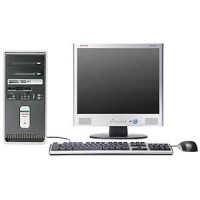If you have ever performed some computer maintenance, you have probably done the following tasks: scan disk, delete unwanted files, and defragment the hard drive. These tasks should be done on a regular basis, and preferably automate the computer maintenance process, to keep your computer running as best as it can, and with minimal issues.
What many people probably don’t do is perform computer maintenance outside of the operating system – or even the physical case, for that matter. Some of the most important aspects to computer maintenance happens in the physical environment the computer is running.

Little Known Computer Maintenance Tasks
There are many computer maintenance tasks that you need to perform that aren’t done within your computer. Below are a few tasks that you should at performing to keep your computer running its best.
Power Protection – Important for Computer Maintenance
The first point that I will mention, may not seem like a computer maintenance point but it is important to mention. Computers require power to run, and many times there may be a brownout or blackout that cuts the power to the computer.
When the power to the computer is stopped will the computer is running, there is a chance that such a stoppage in power could damage the hard drive or other components.
While your computer is in use the hard drive is constantly reading and writing data. This means that the drive’s head is constantly hovering over the physical platters of the hard drive that contain your data.
Once the power is abruptly turned off (without properly shutting down the system), the drive heads may stop and drop onto the platters of the hard drive. This can cause physical damage to the hard drive. Physical damage cannot be repaired.
Once a hard drive is damaged physically, the hard drive will mark the sectors that were effected by the damage as bad and then move the data to good sectors on the hard drive. Once all the good sectors are used up, then the data will remain in the bad sectors, which will then cause loss of data and problems with the operating system.
To help with abrupt power shutdowns, you should look at investing in an uninterruptible power supply (UPS) to help protect your system. When AC power is dropped, the battery backup in the UPS will power the system for a few minutes, which should provide enough time to properly shutdown the system. A UPS will also protect your system from power spikes, such as from lightning strikes, that can do total damage to your system.
Dust – A Computer’s Worst Enemy
Maintenance of a computer should involve the inspection of the computer’s inside. It is good practice to check that all the adapter cards, and memory modules are still snug and secured in their sockets. While in the case, you should also check to see if there is any build up of dust.
Dust can be a major problem for computer failure. It can block fans and the exhaust ports on a computer. When this happens, the fans become less effective, and won’t cool the computer as efficiently.
If the exhaust ports on the computers are also clogged with dust, the hot air in the computer can’t escape, and the cool air can’t enter the computer. Once a computer overheats, several components can be damaged.
It is important to remove any dust built up in your computer and keep your fans running at their maximum efficiency. You can use a can of compressed air to blow away the dust, but never use a vacuum in your computer, or you may actually suck up parts of the circuit boards or other small parts in your computer.
In addition to dust build up, it is also important that you don’t block the exhaust ports of your computer with items that are stored outside of the computer. Ensure that there is enough airflow around the computer so cooler air can enter, and hot air can escape.
Remember that heat can kill a computer.
Monitor the Heat
This point is in addition to the previous point regarding heat. Computers include sensors that can monitor the temperature of vital components such as the processor. Video cards may also include sensors that monitor the temperatures of their processors.
Since heat can damage a computer, it is important to check the temperatures of your computer to ensure that the computers aren’t running too hot for too long.
Many newer processors will stop working at a certain temperature to help protect them from damage. At this point your computer may freeze up, and if this happens monitor the sensors to see if the temperature gets too high. If it does, check for dust build up in the case, and also that the fans are working properly.
Graphics cards can heat up to over 80 degrees Celsius while running a game for long periods of time. Doing so will also increase the amount of heat within your computer, so ensure that you have a well ventilated case will help to reduce the amount of heat build up within the case.
While many of us perform computer maintenance from within the operating system, it is also important to ensure we protect and maintain our computers from a physical perspective as well.
